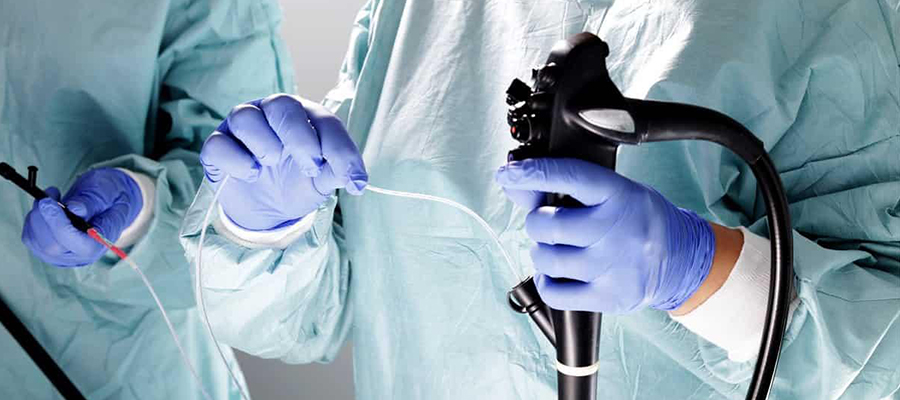
Estimated reading time: 4 minutes and 51 seconds
Endoscopy
Comprehensive Endoscopy Services at Aktif International Hospitals
Endoscopy is a minimally invasive diagnostic procedure used to visualize and examine the interior surfaces of the body, such as the digestive tract, respiratory system, or urinary tract, using a flexible tube with a light and camera attached (endoscope). Endoscopy plays a crucial role in the diagnosis, screening, and treatment of various gastrointestinal, respiratory, and urological conditions, allowing physicians to detect abnormalities, take tissue samples (biopsies), and perform therapeutic interventions with precision and accuracy. At Aktif International Hospitals, we offer comprehensive endoscopy services performed by experienced gastroenterologists, pulmonologists, and urologists using state-of-the-art equipment and techniques to provide accurate diagnosis, personalized treatment plans, and optimal care for our patients.
Frequently Asked Questions
What is endoscopy, and why is it performed?
Endoscopy is a diagnostic procedure used to visualize and examine the interior surfaces of the body, such as the digestive tract, respiratory system, or urinary tract, using a flexible tube with a light and camera attached (endoscope). Endoscopy is performed to:
- Diagnose gastrointestinal conditions: Upper endoscopy (esophagogastroduodenoscopy or EGD) and lower endoscopy (colonoscopy) are commonly used to evaluate and diagnose conditions affecting the esophagus, stomach, small intestine, colon, and rectum, such as gastroesophageal reflux disease (GERD), ulcers, polyps, tumors, inflammatory bowel disease (IBD), or colorectal cancer.
- Screen for cancer and precancerous lesions: Colonoscopy is a recommended screening test for colorectal cancer and can detect and remove precancerous polyps before they develop into cancer.
- Detect and treat gastrointestinal bleeding: Endoscopy can identify the source of gastrointestinal bleeding, such as ulcers, varices, or lesions, and perform therapeutic interventions, such as cauterization, injection, or clipping, to stop the bleeding.
- Evaluate respiratory conditions: Bronchoscopy is used to examine the airways and lungs, diagnose respiratory conditions, such as lung cancer, pneumonia, or tuberculosis, and obtain samples for biopsy or culture.
- Investigate urinary tract disorders: Cystoscopy is performed to visualize the bladder and urinary tract, diagnose urinary tract infections (UTIs), bladder stones, tumors, or urinary incontinence, and perform therapeutic procedures, such as bladder stone removal or biopsy.
Who is a candidate for endoscopy?
Candidates for endoscopy may include individuals who experience:
- Gastrointestinal symptoms: Such as abdominal pain, bloating, nausea, vomiting, diarrhea, constipation, rectal bleeding, or changes in bowel habits.
- Respiratory symptoms: Such as persistent cough, shortness of breath, wheezing, chest pain, or hemoptysis (coughing up blood).
- Urinary symptoms: Such as frequent urination, painful urination, blood in the urine, urinary urgency, or difficulty emptying the bladder.
- Positive screening tests: Such as fecal occult blood test (FOBT), fecal immunochemical test (FIT), or fecal DNA test for colorectal cancer screening.
How is endoscopy performed?
Endoscopy is typically performed as an outpatient procedure in a specialized endoscopy unit or procedure room. The endoscopy procedure varies depending on the type and location of the examination, but it generally involves the following steps:
- Preparation: The patient may be instructed to follow specific dietary restrictions or bowel preparation protocols before the procedure to ensure optimal visualization of the internal organs.
- Sedation: The patient may receive intravenous (IV) sedation or anesthesia to help them relax and minimize discomfort during the procedure.
- Insertion: The endoscope is gently inserted into the body through a natural opening, such as the mouth (for upper endoscopy), anus (for lower endoscopy), nose (for bronchoscopy), or urethra (for cystoscopy).
- Visualization: The physician carefully navigates the endoscope through the body and visualizes the internal organs and tissues on a monitor in real time, looking for any abnormalities, lesions, or areas of concern.
- Biopsy or intervention: If necessary, the physician may take tissue samples (biopsies), remove polyps or lesions, perform therapeutic interventions, or administer medications directly to the affected area using specialized instruments passed through the endoscope.
- Recovery: After the procedure, the patient is monitored in a recovery area until the effects of sedation wear off and vital signs are stable. Depending on the type of sedation used, patients may be advised to refrain from driving or operating heavy machinery for a certain period after the procedure.
What are the benefits of endoscopy?
Endoscopy offers several benefits for individuals undergoing diagnostic evaluation or therapeutic interventions, including:
- Minimally invasive approach: Endoscopy avoids the need for traditional open surgery, resulting in less pain, scarring, and recovery time for the patient.
- Accurate diagnosis: Endoscopy provides direct visualization of internal organs and tissues, allowing physicians to detect abnormalities, take tissue samples (biopsies), and perform interventions with precision and accuracy.
- Personalized treatment plans: Endoscopy results guide physicians in developing personalized treatment plans tailored to the individual’s specific condition, symptoms, and medical history.
- Early detection and treatment: Endoscopy can detect early signs of cancer, precancerous lesions, or other abnormalities, allowing for timely intervention and improved outcomes.
Trust Aktif International Hospitals for Comprehensive Endoscopy Services
At Aktif International Hospitals, we understand the importance of accurate diagnosis and personalized treatment for gastrointestinal, respiratory, and urological conditions, and we are committed to providing comprehensive endoscopy services to support the health and well-being of our patients. Our team of experienced gastroenterologists, pulmonologists, urologists, and healthcare professionals specializes in endoscopic procedures and offers personalized care tailored to your unique needs and concerns. Whether you require upper endoscopy, colonoscopy, bronchoscopy, cystoscopy, or other endoscopic procedures, you can trust Aktif International Hospitals to deliver high-quality endoscopy services with compassion and expertise. Schedule your consultation with us today and experience the difference at Aktif International Hospitals.
Author: Muharrem Kuzkaya


 TR
TR FR
FR ES
ES RU
RU RO
RO